Why Do Canadians Know So Little About Co-operatives?
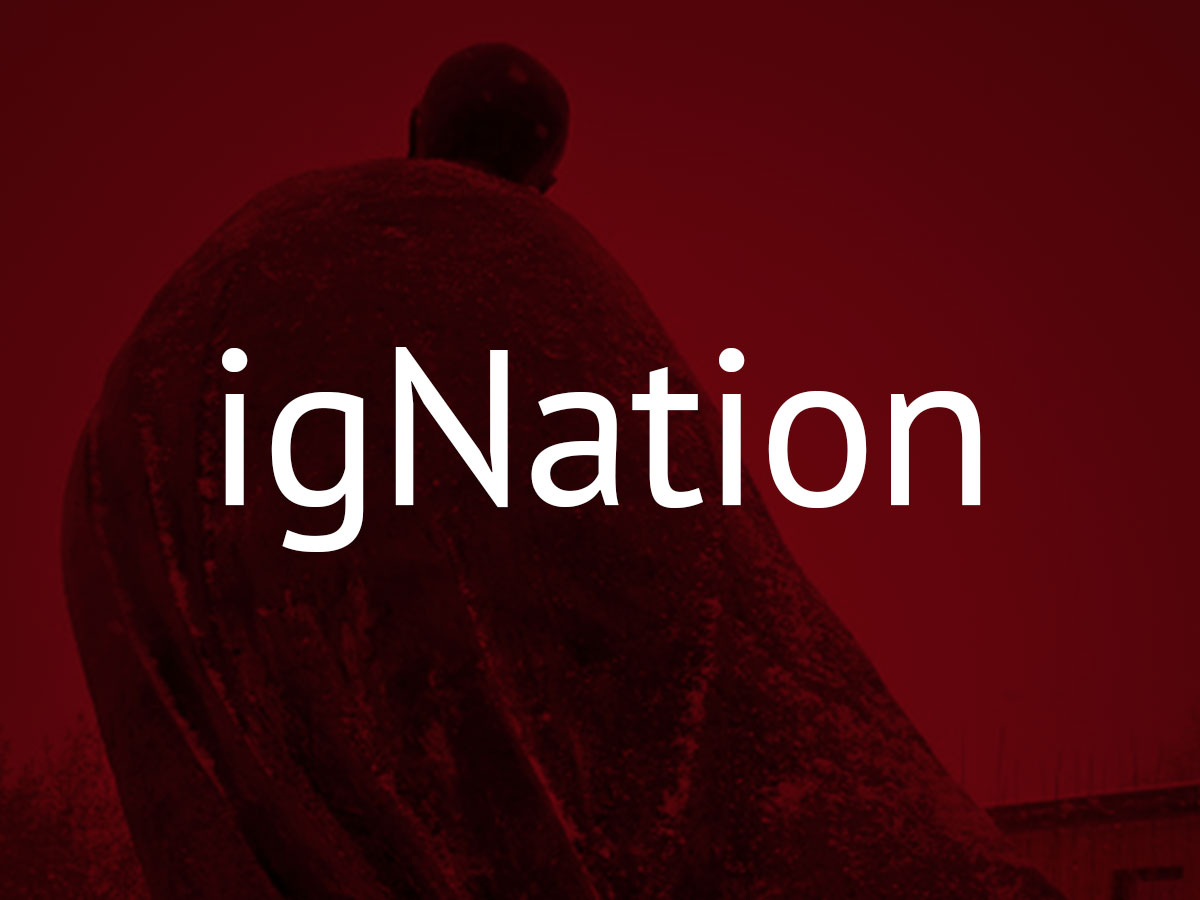
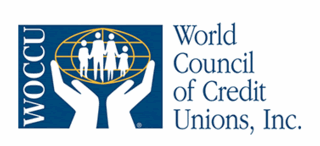 Did you know that the co-operative movement is at work in more than 100 countries, and that it has more than 800 million members? Would you be surprised to hear that four out of every ten Canadians belong to at least one co-op? (In Quebec, co-op membership includes 70% of the population.)
Did you know that the co-operative movement is at work in more than 100 countries, and that it has more than 800 million members? Would you be surprised to hear that four out of every ten Canadians belong to at least one co-op? (In Quebec, co-op membership includes 70% of the population.)
Bet you didn’t know that the World Council of Credit Unions includes 49,000 credit unions serving 177 million members in 96 countries, or that 4,200 banks that are members of the European Association of Co-operative Banks serve 149 million clients—and that their banks did not get hooked or wrecked in the notorious banking scandals/collapses of recent years. And credit unions are today ranked 18th among the 50 safest banks in the world.
So although the co-op movement is visionary, it isn’t just a dream. It’s a reality that accounts for approximately 100 million jobs world-wide.
So how come the mainstream press is so quiet about it? – except to note that, last April, the Harper government had terminated the federal Co-operative Initiative that promoted co-ops in Canada.
The United Nations took a stab at removing this cloak of silence by naming 2012 The Year of Co-operatives, with the theme “Co-operative Enterprises Build a Better World.” UN Secretary General Ban Ki-moon told the world that “Co-operatives are a reminder to the international community that it is possible to pursue both economic viability and social responsibility.”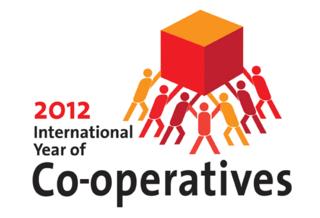
The Canadian Co-operatives Association responded to the UN initiative by bringing together an International Summit of Co-operatives, last October 6-11, in Quebec City. This ambitious world gathering aimed to make co-operatives more effective economically and socially – and more influential in international and domestic political, economic, educational and other cultural institutions. They came, 2,800 co-op leaders from 91 countries, big and small, including China and Nepal, loaded with studies and surveys to inform each other and make their co-ops better known. The lead Canadian organizers included St. Mary’s University in Halifax (which offers a graduate program in Co-operative and Credit Union Management) and the enormous Quebec-based Desjardins Group of co-operatives.
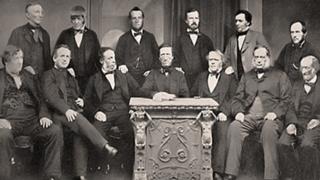 The first small co-op was opened in 1844 by the Rochdale Equitable Pioneer Society in England. Despite many trials the movement prospered and soon diversified and spread to the New World. The development of co-ops in Canada is a sterling example of the strength and creativity of the movement. The pioneer Alphonse Desjardins established the first credit union (caisse, in French) in Lévis, Quebec, in 1901–creating an innovative financial model of savings and credit, owned and governed by its members. The Catholic clergy in Quebec gave their full support to the new caisses—even to extent of seeking Pope Pius X’s approval for priests to manage local branches. By 1963, Quebec had 1,248 credit unions with assets of over $1 billion and 1,539,000 members. Nor did the co-op movement restrict itself to co-operative forms of banking. Agricultural co-ops, housing co-ops, consumer co-ops and many other structures for economic solidarity, mutual support and stimulus grew to be a major dimension of Quebec’s economy, as they still are today.
The first small co-op was opened in 1844 by the Rochdale Equitable Pioneer Society in England. Despite many trials the movement prospered and soon diversified and spread to the New World. The development of co-ops in Canada is a sterling example of the strength and creativity of the movement. The pioneer Alphonse Desjardins established the first credit union (caisse, in French) in Lévis, Quebec, in 1901–creating an innovative financial model of savings and credit, owned and governed by its members. The Catholic clergy in Quebec gave their full support to the new caisses—even to extent of seeking Pope Pius X’s approval for priests to manage local branches. By 1963, Quebec had 1,248 credit unions with assets of over $1 billion and 1,539,000 members. Nor did the co-op movement restrict itself to co-operative forms of banking. Agricultural co-ops, housing co-ops, consumer co-ops and many other structures for economic solidarity, mutual support and stimulus grew to be a major dimension of Quebec’s economy, as they still are today.
In Atlantic Canada, the co-operative idea was spearheaded in the 1920s by the Antigonish movement, with illustrious leaders like Father Moses Coady. Co-operatives were also spreading across western Canada, particularly in Saskatchewan. Today Saskatchewan has 1,200 co-operatives active in virtually in every economic and social sector, but especially in agriculture. They provide jobs for 1,500 people, control $10 billion in assets, and represent 28 of the province’s top businesses.
Through many hardships, the Canadian co-operative movement prospered and presently has 9,000 co-operatives with18,000,000 members, 155,000 employees, 100,000 volunteers, and $50 billion in annual income. And so the Canadian Co-operative Association had good reason to celebrate The Year of Co-operatives in 2012 with a huge International Summit on the theme “The Amazing Power of Co-operatives.”
Can the co-operative approach grow and become powerful enough to influence the way business is done in the economy as a whole? Can it help to civilize the behaviour of markets? Theorists of the co-op movement aim at that, and Pope Benedict considered it a highly desirable possibility. He writes in Caritas in Veritate, “Without prejudice to the importance and the economic and social benefits of the more traditional forms of business, they [social or civic businesses] steer the system towards a clearer and more complete assumption of duties on the part of the economic subjects. And not only that. The very plurality of institutional forms of business gives rise to a market which is not only more civilized but also more competitive.” [45]
The central concern of the first half of the International Summit was the inadequacy of capitalist markets to confront today’s financial chaos, high unemployment, the growing income gap between rich and poor and the need to fit economic activity within ecological limits, especially in the use of fossil fuels.
 The second half of the summit, with the full assembly of 2,800 co-op leaders, was spent in strategizing how to make co-ops still more effective and better known. They urged better education and formation of their own members, especially the younger members. More broadly, they plan to work to get co-operative economics taught in business schools and universities (and in high schools too, for that matter). They will also interconnect and co-operate globally much more than in past, following the example of the multinational corporations. And they will use their increased growth and strength to have access and influence with UN agencies such as the International Monetary Fund, the World Bank and the International Labour Organization, as well as with domestic governments. They want to be seen a part of a real pluralistic market economy, not just a marginal alternative.
The second half of the summit, with the full assembly of 2,800 co-op leaders, was spent in strategizing how to make co-ops still more effective and better known. They urged better education and formation of their own members, especially the younger members. More broadly, they plan to work to get co-operative economics taught in business schools and universities (and in high schools too, for that matter). They will also interconnect and co-operate globally much more than in past, following the example of the multinational corporations. And they will use their increased growth and strength to have access and influence with UN agencies such as the International Monetary Fund, the World Bank and the International Labour Organization, as well as with domestic governments. They want to be seen a part of a real pluralistic market economy, not just a marginal alternative.
In the early moments of this huge gathering in Quebec, the Chilean economist, Manfred Max-Neef, the first economist to speak, said he had difficulty finding hope today because “We have so much knowledge with so little understanding.”
However, the final word came from a revered French eco-socioeconomist, Ignacy Sachs, speaking at the closing lunch. When asked if he had hope for the future he replied, haltingly, “yes” — on condition that in the coming decade the nations of the world manage to reduce the growing income gap between the rich and the poor so that it might become possible for all peoples to begin to engage seriously in necessary planetary planning.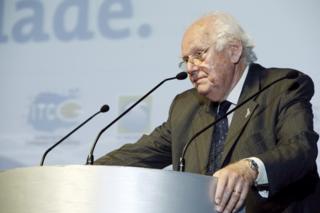
Finally, I was both surprised and disappointed that in this very important global conference there was no room for God or explicitly religious language – only Rochdale co-op values, which coincide substantially with Catholic social teaching.
It’s clear that the Church and co-operative movements have similar economic concerns and proposals for creating a more socially responsible economy for people and for the planet. History tells us that these proposals are realistic as well as visionary. Mutual support between churches and co-ops has often been fruitful in the past, and can still be fruitful in generating social hope in the midst of today’s frightening crises.




No Comments